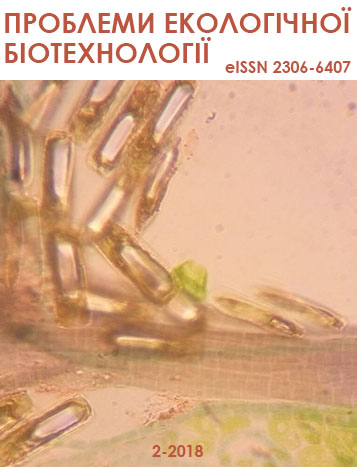The influence of hydrogen-ion concentration on the production of intermediate compounds in degradation reaction of D-giucose
DOI:
https://doi.org/10.18372/2306-6407.2.13213Keywords:
D-glucose, degradation, acidic medium, early stages, intermediates, UV-spectroscopyAbstract
In the paper there is considered the question of the influence of hydrogen-ions concentration on the formation of intermediates (unsaturated carbonyl-containing compounds with Lambdamax225 nm and carbonyl-containing compounds with Lambdamax285 nm) of the early stages of degradation D-glucose in aqueous solutions in pH range 1,0–7,0. By UV-spectroscopy there is demonstrated that an increase in hydrogen-ions concentration slows the formation of basic intermediates of the early stages, but it accelerates the transformation of unsaturated carbonyl-containing intermediates (Lambdamax225 nm) to 5-hydroxymethylfurfural. It was shown that reactions of the formation of unsaturated carbonyl-containing compounds, as starting intermediates for further transformations, slowed down at pH 3, indicating a certain stability of D-glucose under these conditions.
References
Ab initio molecular dynamics simulations of β-D-glucose and β-D-xylose degradation mechanisms in acidic aqueous solution / [Mark R. Nimlos, Mark Davis, David K. Johnson, Michael E. Himmel] // Carbohydrate Research. – 2005. – Vol. 340, Is. 14. – P. 2319–2327.
Simultaneous formation of 3-deoxy-D-threo-hexo-2-ulose and 3-deoxy-D-erythro-hexo-2-ulose during the degradation of D-glucose derived Amadori rearrangement products: Mechanistic considerations / [Martin Kaufmann, Sophie Krüger, Clemens Mügge, Lothar W. Kroh] // Carbohydrate Research. – 2018. – Vol. 458–459. – P. 44–51.
Kaufmann M. NMR analyses of complex D-glucose anomerization / Martin Kaufmann, Clemens Mügge, Lothar W.Kroh // Food Chemistry. – 2018. – Vol. 265 – P. 222–226.


